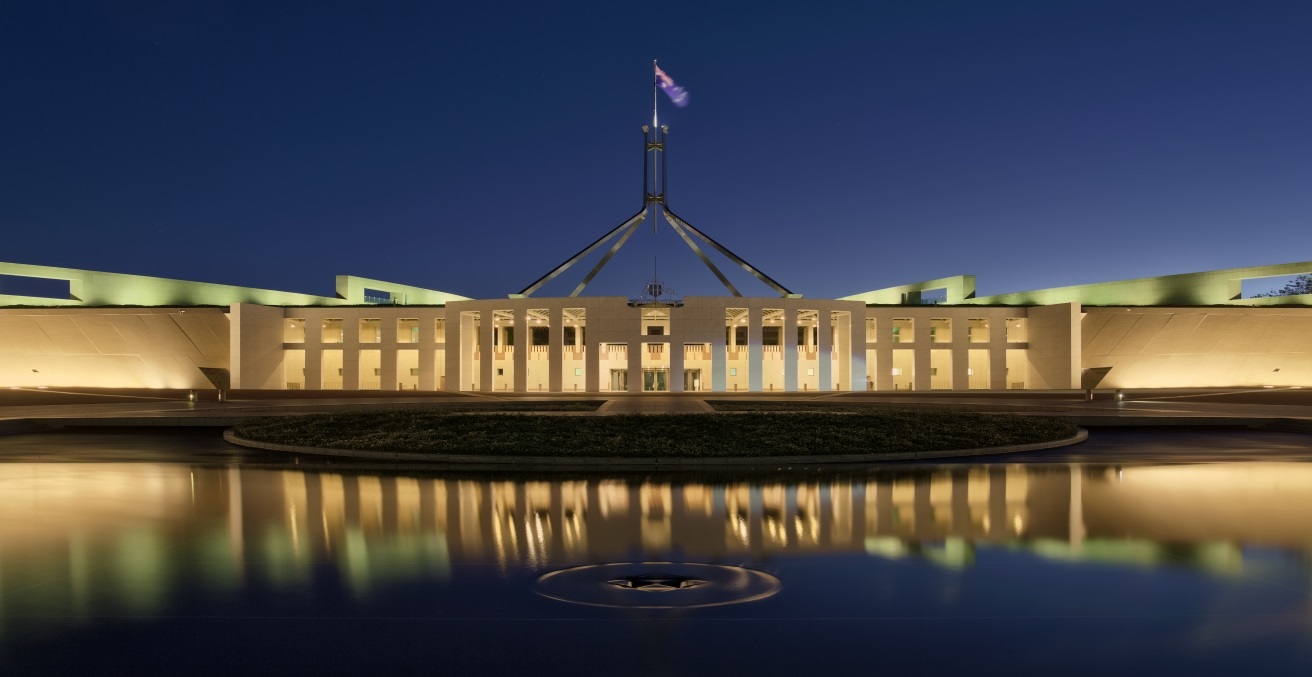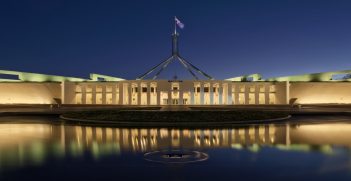13 October 2023: The Week in Australian Foreign Affairs

This week in Australian foreign affairs: Albanese, Marles and Wong on Hamas attack on Israel; Cheng Lei returns to Australia; sixth Philippines–Australia Ministerial Meeting; and more.
Prime Minister Anthony Albanese addressed the Jewish community in St Kilda on 11 October, where he emphasised that “the Government and the people of Australia condemn this attack by Hamas”. Albanese noted that “the targeting of civilians and taking of hostages is an affront to all Australians and we condemn these horrific acts” and that “we will stand with Israel. We always will.”
On 9 October, Deputy Prime Minister and Minister for Defence Richard Marles addressed the ‘United with Israel’ Community Gathering at Caulfield Shule. He stated that “tonight, Australia’s heart breaks for Israel” and that “in the face of this evil, tonight Australia embraces Israel and all her people.” Marles emphasised that “in 2023, it is time, around the world, that there is an acknowledgement that Israel has a right to exist in peace and with security. And as this right is asserted, our nation stands as one with all the people of Israel.”
In a press conference on 9 October, Minister for Foreign Affairs Penny Wong reiterated that “Australia unequivocally condemns the attack on Israel by Hamas [and] the indiscriminate rocket fire, the targeting of civilians and the taking of hostages, a particularly distressing and egregious act by Hamas.” She noted she had spoken to the Foreign Minister of Israel, and had “expressed Australia’s support for Israel, our solidarity and our support for Israel’s right to defend itself.”
On 11 October, Wong confirmed the death of an Australian citizen, Galit Carbone, who was “murdered in the attacks on Israel by terrorist group Hamas.” She stated that “The loss of life from these attacks has been devastating and unacceptable” and that “Australia has called for the attacks to stop and for the immediate and unconditional release of all those taken hostage.” Wong emphasised that “Australia continues to urge the protection of civilian lives at all times.”
Wong announced on 11 October that “the Australian Government will begin the assisted-departure of Australians affected by the situation in Israel and Gaza” from Friday 13 October, with flights to be operated by Qantas free of charge.
On 11 October, Wong addressed the Australia-Israel Chamber of Commerce in Melbourne, where she reiterated that the attacks on Israel by Hamas “are abhorrent”, “are the acts of terrorists”, “cannot be justified” and “must be condemned.” Wong reflected on former Labor Foreign Minister Doc Evatt’s role as a “leading architect of the partition plan that laid the foundations for the creation of a new nation state”, noting that “Australia was the first country to cast a vote in favour of the UN Partition Plan” and that “we remain as steadfast and unwavering as ever in our support for Israel.” She also emphasised that “we believe that the just and enduring peace Israelis deserve would only be enhanced by a negotiated two state solution, in which Israel and a future Palestinian state coexist, in peace and security, within internationally recognised borders”, but that “one of the many tragic consequences of Hamas’s abhorrent attack is that it has pushed that two-state solution further out of reach [which] makes this is [sic] an unconscionable crime perpetrated by Hamas against the Palestinian people.”
Albanese and Wong confirmed on 11 October in a joint statement that Australian Citizen Cheng Lei “has arrived safely home in Australia and has been reunited with her family, after more than three years of detention in China.” They noted that the Government has been seeking Cheng’s return since she was detained in August 2020, and that her release “follows the completion of legal processes in China.” Leader of the Opposition Peter Dutton and Shadow Minister for Foreign Affairs Simon Birmingham welcomed Cheng Lei’s “release and safe return to Australia”, and “acknowledge[d] the Government’s efforts to continue the work of former foreign minister Marise Payne to secure Ms Cheng’s release and their provision of regular confidential briefings to the Opposition on the situation.”
On 9 October, Wong and Minister for Trade Don Farrell welcomed Philippine Secretary for Foreign Affairs Enrique Manalo and Secretary of Trade Alfredo Pascual to Adelaide for the sixth Philippines–Australia Ministerial Meeting (PAMM). The meeting focussed on “opportunities to deepen trade and investment, strengthen our security and maritime ties, and explore further cooperation on agriculture and food, the energy transition, education and skills.” In a joint statement, the Ministers and Secretaries “reinforced [their] countries’ commitment to striving for a region that is open, stable and prosperous” and “reaffirmed [their] shared interests in preserving peace in the Indo–Pacific and recognised the stability of the region is anchored in respect for sovereignty and agreed rules and norms, and commitment to upholding international law.” They also committed to work in partnership to “preserve and strengthen an open, inclusive, and rules-based international order, governed by international law”, as well as to “reinforce our extensive and long-standing defence and security cooperation, supported by the Enhanced Defence Cooperation Program.” The Ministers and Secretaries reiterated that the 2016 South China Sea Arbitration Award “is final and binding on both parties”, expressed concern about the “deteriorating security, economic and humanitarian situation in Myanmar”, and “committed to deepen[ing] bilateral trade and investment.”
Wong, alongside Minister for International Development and the Pacific Pat Conroy and Assistant Minister for Foreign Affairs Tim Watts, on 11 October jointly announced $1 million to support the people of Afghanistan following the deadly earthquake which struck Herat Province. The assistance will be directed through the Afghanistan Humanitarian Fund (AHF), led by the UN Office for the Coordination of Humanitarian Affairs, which provides emergency shelter, health, food and protection for vulnerable people. The Ministers emphasised that “no Australian funding will benefit or legitimise the Taliban regime.”
Farrell and his Japanese counterpart, Minister of Economy, Trade and Industry Nishimura Yasutoshi co-chaired the fifth Japan-Australia Ministerial Economic Dialogue on 8 October in Melbourne. They were joined by Minister for Climate Change and Energy Chris Bowen, and Minister for Resources and Minister for Northern Australia Madeleine King. In a joint statement, the Ministers “recognised that Australia and Japan’s Special Strategic Partnership was stronger and more important than ever, underpinned by common values, deep economic complementarity, and enduring people-to-people links.” They also discussed energy security, transition and climate cooperation, economic security and supply chains, regional economic challenges, the World Trade Organization, and the UK’s signing of the Comprehensive and Progressive Trans-Pacific Partnership.
On 12 October, Farrell announced the appointment of Gabrielle Hall as Consul-General and Trade and Investment Commissioner in Houston, Texas. Hall was previously Austrade’s Senior Investment Advisor for the Americas region. Farrell stated that her appointment “reinforces our diplomatic capacity, and recognises the strong and enduring bilateral trading relationship between Australia and the United States.”
Watts travelled to Sri Lanka on 10 October, where he represented Australia at the 23rd meeting of the Indian Ocean Rim Association Council of Ministers, and renewed a sports cooperation memorandum of understanding. Moreover, Watts signed a renewed Trade and Investment Framework Agreement, to “support economic recovery” and enhance Australia’s “growing economic ties with Sri Lanka”. He also “discuss[ed] with Sri Lankan counterparts how we can work together to meet shared challenges like climate change and transnational crime.”
On 10 October, Conroy delivered the 2023 Alfred Deakin Institute Oration, where he focussed on “Australia’s engagement with the region through our international development program.” He reiterated the principles in Australia’s new international development policy, released in August this year: “respectful listening, acting on partner priorities, and working in genuine partnership with governments and communities across our region.” Conroy referred to the “shared vision” that “Australia and countries across the Indo-Pacific have”: “a peaceful, safe and prosperous region, where sovereignty is respected and our agreed rules and norms are upheld.” He noted that “climate change – in particular, adaptation and resilience-building – is a central focus of our development policy”, remarking that Australia will be re-joining the Green Climate Fund. Conroy also emphasised equality as another key priority of the development policy, noting that “we are open and upfront with our neighbours that these issues – climate change, gender equality and disability equity – are our priorities in this space, just as they are here at home.” He concluded by stating that “our international development program – built on respectful listening, true partnership and acting on partner priorities – is one of the best tools we have to work with the region around us.”
Isabella Keith is a weekly columnist for Australian Outlook. She is also a Research Assistant, Sessional Academic, and Honours student in Law at the Australian National University, with a focus on international law. Isabella attended the AIIA #NextGen study tour to South Korea last year, and was also a delegate to the AIIA’s Australia-Korea-New Zealand and Australia-United States-Japan Policy Forums. She can be found on Twitter here.
This article is published under a Creative Commons License and may be republished with attribution.




